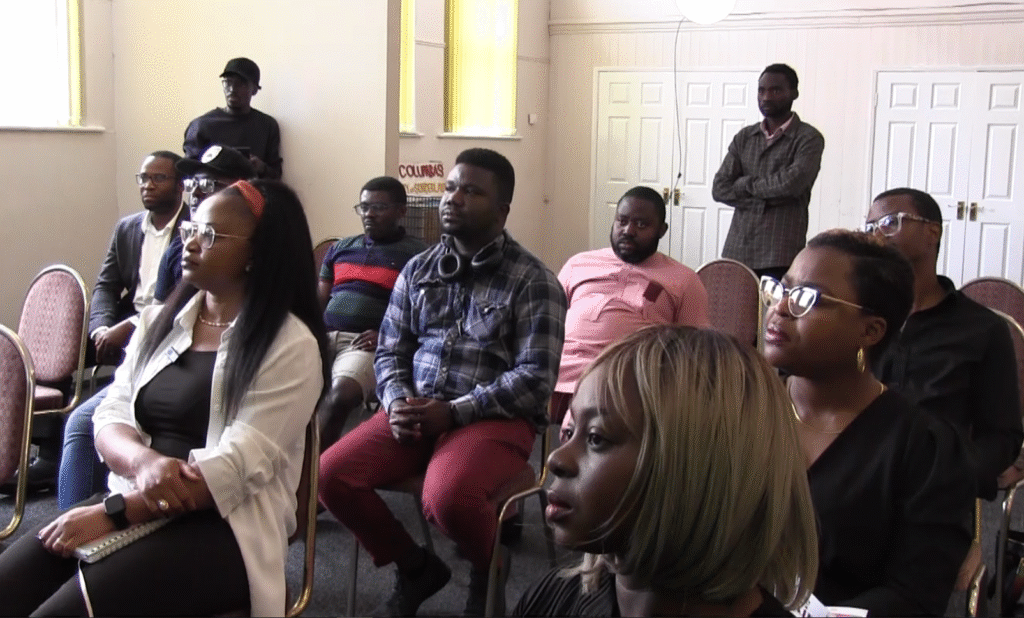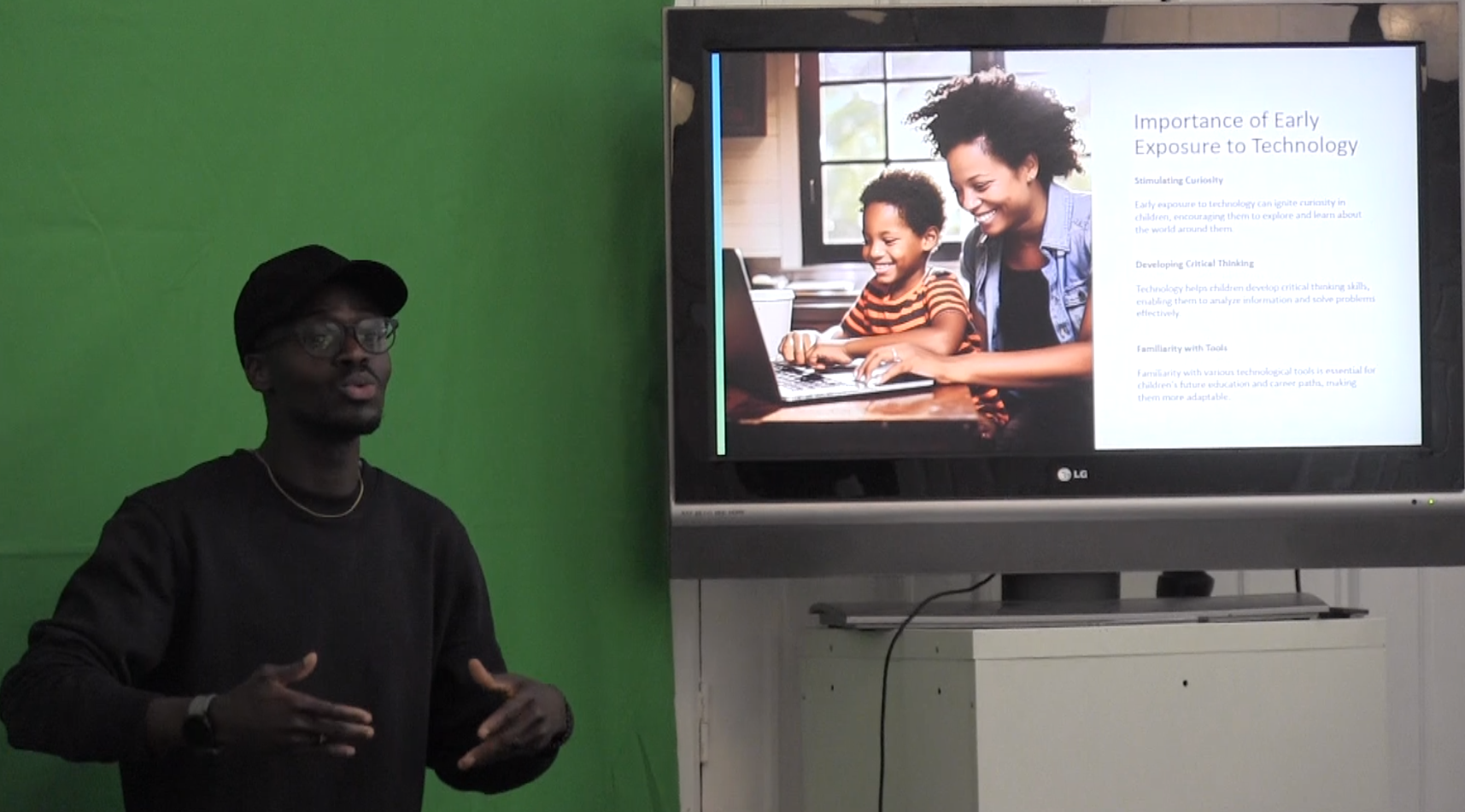A Sunderland-based Nigerian man joined educators, parents, and community leaders this week to promote early tech education for children, particularly those from underrepresented backgrounds.
The discussion took place at a focus group organised by the CodeBridge Youth Initiative, where participants explored practical ways to introduce digital learning at a young age.
Speakers emphasised that building technical skills early can help level the playing field, giving children the tools to thrive in an increasingly digital world.
Michael Akinyemi, Founder CodeBridge Youth Initiative said: “My motivation stems from a deeply personal place. Growing up in Nigeria, I transitioned from studying geology to becoming a software engineer, a journey that wasn’t easy but completely transformed my life.” He said the CodeBridge Youth Initiative, which he launched in 2021, was born out of seeing untapped potential among young people in his community who had little or no exposure to careers in technology.
Mr. Akinyemi emphasised that the initiative focuses primarily on young people aged 10 to 18, although some programmes include children as young as eight. “At 10 to 14, they’re curious, unafraid of failure, and able to grasp coding like they would a new language,” he explained. For the older age group, he said, “This is when they’re making key career decisions. When a 16-year-old builds their first app and earns £100 from a freelance job, it changes not just their outlook, but their family’s idea of what’s possible.”
Addressing concerns from parents, he clarified that tech education is often misunderstood. “The biggest misconception is that tech means more screen time or gaming addiction,” he said. “But there’s a world of difference between consuming and creating.” He shared stories of children building websites for their parents’ businesses or automating homework tasks—examples of how coding fosters critical thinking and creativity. He also pointed out that expensive gadgets and tech-savvy parents aren’t necessary. “We started with refurbished computers, free software, and parents who couldn’t even use email. What matters is creating the right environment.”
However, changing mindsets around traditional career paths remains a major hurdle. Many families, he said, still believe that only professions like law, medicine, or engineering offer security. That perception began to shift after success stories emerged. “When one of our mentees got a job at a tech company earning more than her uncle, who’s a doctor—that’s when people started paying attention,” Akinyemi recalled.
Looking ahead, he believes the UK is ripe for expansion. “Having recently relocated here, I see tremendous opportunity to create a bridge between the UK and African tech ecosystems,” he said. His vision is to adapt the proven Nigerian model to UK communities, especially in areas with high BAME populations, and eventually establish a network of CodeBridge centres across both continents. “We’re not just teaching code,” he added. “We’re building bridges—between continents, communities, and the futures young people deserve.”
Also speaking at the Sunderland event, Samuel Akpan, a Data Architect Manager, highlights the vital role parents play in fostering young tech enthusiasts. “You don’t have to understand coding to support your child in tech. What matters most is the environment you create at home. When children feel their curiosity is supported—not dismissed—they’re more likely to explore, learn, and persist. I have seen children light up simply because a parent sat next to them while they try to figure things out, even if that parent didn’t know what the code meant.”
Akpan adds, “Too often, especially in underrepresented communities, parents push for only traditional careers because that’s what they know. But we need to help them see that the digital economy is full of opportunity. A child learning Python today for example isn’t wasting time. They are investing in a future where they can freelance, build apps, or even lead a startup. It all begins with the belief at home that tech is not only accessible, but valuable.”
Olorunleke Olorunshola, a Power Platform Developer, contributing to the discussion said: “Tech is not just a career path, it is a mindset shift. “When a 10-year-old learns they can automate a task or build a website, they start to view the world differently. Suddenly, they’re not just users of technology—they’re contributors.
That early exposure to problem-solving and creativity builds confidence and resilience that carries into every area of life.”
He continues, “We often think of tech as coding behind a screen, but it is so much more than that. It is about creating solutions to real-life problems. These are not just theoretical skills, they are tools for economic empowerment. Early tech education doesn’t just shape careers—it shapes communities.”

In the meantime, Eva Uche-Mark, a Project Manager who recently moved from Nigeria with her family, reflected on the transition with both professional and personal growth. “As someone who understands child development, I was aware that the systems are different, but living through it as a parent was a whole other story,” she said. “We all know that when it comes to the educational system back home, our children are drilled with lots of subjects and assignments. But here, i have not seen a single assignment. They are given activities that engage them, that way i get the chance to engage with them.”
The mum of two also said she personally needed to change her perception of education for the sake of her children. Adding that “what we are use to might not be the right thing. She praised the UK education system for its inclusive practices but noted the need for stronger support for migrant families. “They really try to understand each child’s learning style and background, which is wonderful,” she said. “However, navigating the system in the beginning was overwhelming.”

Dr. Eva also acknowledged the personal growth it inspired in both her and her child. “I’ve learned to let go of perfection and let her explore. She’s thriving now—reading books she enjoys and loves her quiet. For all the confusion in the beginning, I’d say the UK system offers children room to breathe and grow into themselves.
Meanwhile, Vera Uzokwe, a Media Personality and mother of one said: “My experience is a little different because I had my son here. So I didn’t have to deal with the direct transition from Nigeria’s education system to the UK’s, but I’m constantly comparing both in my head because that’s the system I grew up in.”
Vera described the UK school environment as more nurturing and flexible. “Here, children are given space to develop emotionally and socially, not just academically,” she said. “Sometimes I’m tempted to push my son a bit more because that’s what I’m used to, but I’ve learnt to trust the process. The emphasis on creativity and mental well-being is something I really appreciate.”
Still, she acknowledged the internal tension that sometimes comes with being a Nigerian parent in a different culture. “There’s always that voice asking, ‘Is he doing enough?’”.
“But I’ve seen how the UK system helps children become more confident and well-rounded. He’s not just memorising facts, he is learning to think, question, and express himself. That’s something I have come to really value.”
Many UK nurseries and early-years settings now offer basic coding classes to pupils as young as 3 or 4. These programmes typically use ScratchJr or physical tools like Cubetto and KIBO to teach foundational programming concepts. One Wired report noted that this early exposure helps foster problem-solving and computational thinking from a very young age








Leave a Reply